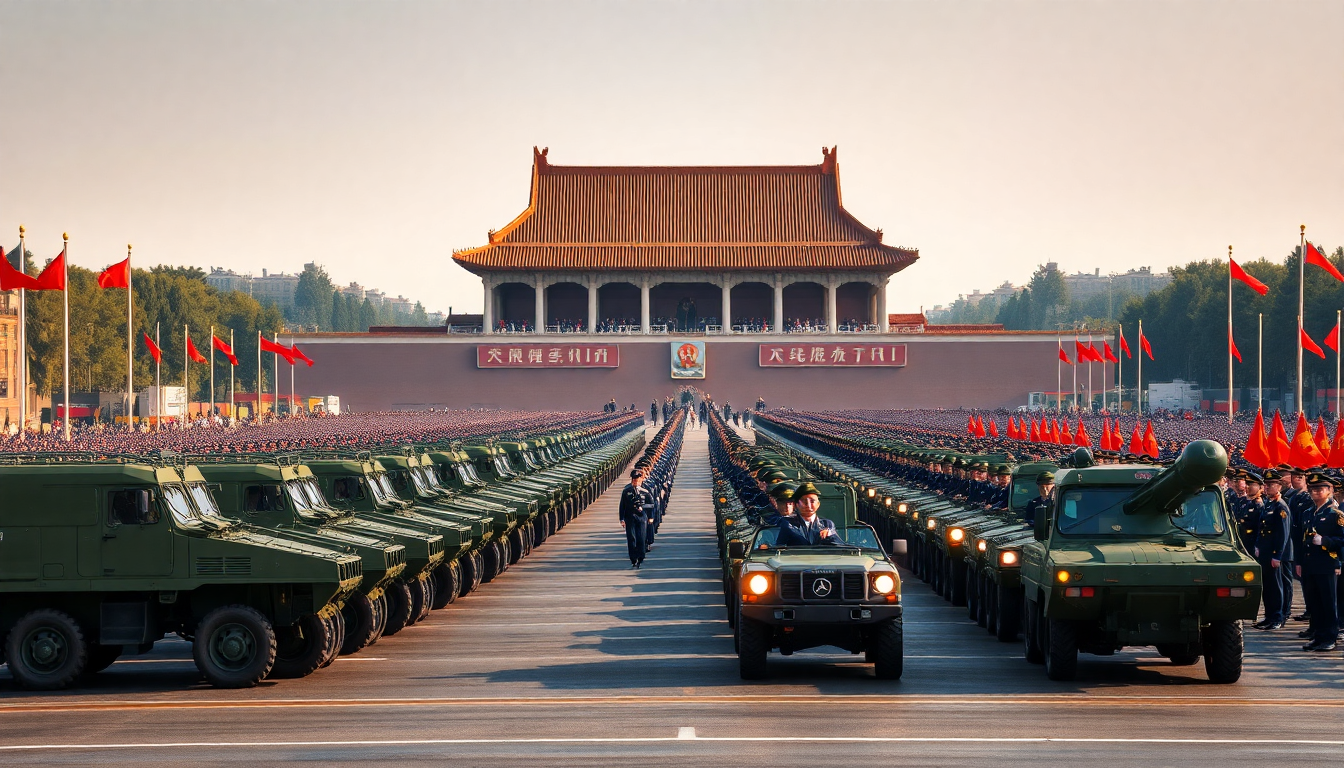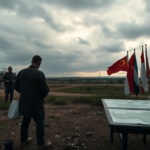Table of Contents
Military parades have been a staple for nations looking to showcase their might, offering a glimpse into the latest in military technology while sending a clear message about their defense capabilities. Have you ever wondered why these grand displays are so important? Beyond just boosting national pride, they serve as a powerful reminder of a country’s readiness to protect its sovereignty.
Coming up soon is a major parade in central Beijing, set to mark the 80th anniversary of the end of World War II, where we can expect to see some impressive advancements in military technology, especially regarding the nuclear triad.
The Role of Military Parades in National Defense
Military parades are more than just flashy events; they play a pivotal role in shaping national defense strategies. By showcasing cutting-edge equipment and weaponry, countries reaffirm their commitment to safeguarding their territory.
As Wu Zeke, deputy director of the parade leadership office, pointed out, this event will feature a variety of domestically produced systems, many making their debut. This isn’t just about showing off; it emphasizes a nation’s self-reliance in defense.
The inclusion of the nuclear triad—comprising land, sea, and air-based strategic weapons—underscores a comprehensive defensive strategy. Think about it: if one or two delivery systems are compromised, the remaining forces can still execute a strong retaliatory strike. In today’s unpredictable geopolitical landscape, maintaining such strategic flexibility is crucial.
Moreover, these parades serve as a reminder of a nation’s military capabilities to both domestic and international audiences. They instill a sense of security among citizens while demonstrating strength to potential adversaries. In essence, military parades are a unique blend of celebration and strategic communication.
Isn’t it fascinating how they can convey so much in just a few hours?
Technological Advancements on Display
The upcoming parade promises to unveil several pieces of advanced military equipment, highlighting the evolution of defense capabilities. Expect to see various strategic heavy weapons that reflect the latest in military technology. This focus on homegrown systems signals a shift towards self-sufficiency in defense manufacturing, which is becoming increasingly important in today’s uncertain global dynamics.
And let’s not underestimate the strategic significance of showcasing such advanced weaponry. By demonstrating their capabilities, nations not only strengthen their deterrent posture but also encourage domestic innovation within their defense sectors. This creates a feedback loop where public displays of military strength can inspire further advancements, ensuring that a nation stays at the cutting edge of military technology.
As observers eagerly await the unveiling of these new systems, the potential implications for regional security dynamics cannot be overlooked. Countries might reassess their defense strategies in response to advancements made by their neighbors, showcasing the intricate connections between military displays and international relations. Have you thought about how this might shift the balance in the region?
Public Perception and National Identity
Military parades also play a crucial role in shaping how citizens perceive their national identity. They act as a powerful tool for fostering unity and pride among the populace. When individuals rally around their military, they often feel a deeper connection to their country, which can enhance social cohesion, especially during turbulent times.
However, the impact of these displays is complex. While they can boost national sentiment, they may also raise concerns about militarization and the potential for conflict. This poses a challenge for governments: how do they showcase strength while simultaneously promoting peace? Engaging the public in discussions about military capabilities and defense priorities can help ease fears while cultivating a collective appreciation for national security.
As the parade draws closer, it will be fascinating to see how both domestic and international audiences react. This event is more than just a spectacle; it encapsulates an ongoing dialogue about national identity, security, and the role of military power in a rapidly changing world. What are your thoughts on how military displays influence perceptions of national identity?





